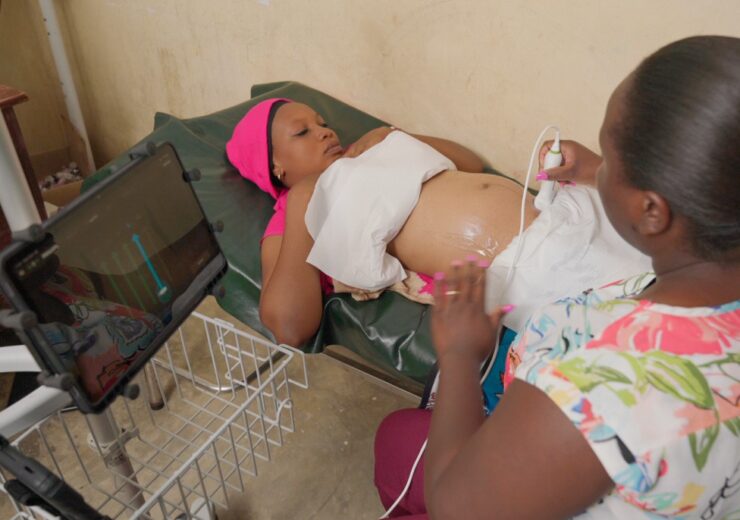The second round of funding, which brings the total funding from the Bill & Melinda Gates Foundation to reach up to $60m, will help expand the company’s AI algorithms to support the deployment of the AI-assisted tool to underserved communities worldwide

Healthcare professional using Lumify ultrasound. (Credit: Koninklijke Philips N.V.)
Royal Philips has received an additional $44.6m in funding from the Bill & Melinda Gates Foundation to advance the adoption of AI algorithms on its Lumify Handheld Ultrasound.
In 2021, the health technology company received $15.4m in funding from the foundation to develop AI-powered applications to improve obstetric care in low- and middle-income countries.
The second round of funding brings Philips’ total funding from the Bill & Melinda Gates Foundation reach up to $60m.
The new round of funding will help expand the AI algorithms to support the deployment of the AI-assisted tool to underserved communities worldwide.
Philips said the use of AI to identify abnormalities during pregnancy would reduce the ultrasound training time from weeks to hours.
Also, the approach will expand the pool of frontline health workers who can learn to use the technology and integrate it into routine care.
Bill & Melinda Gates Foundation maternal, newborn and child health discovery and tools director Rasa Izadnegahdar said: “A critical goal of our work at the Bill & Melinda Gates Foundation is to bring health technology to underserved areas of the world to help prevent women from dying in childbirth – an issue that is critical in high-income countries like the US and UK as well.”
Philips ultrasound general manager Jeff Cohen said: “By supporting front-line healthcare workers such as midwives to identify potential problems in pregnancy at an early stage, we aim to significantly reduce the number of women who die because of pregnancy.
“During this next phase, working with the Bill & Melinda Gates Foundation, we will bring this innovation as a commercial offering to the market to help increase quality access to care and improve maternal health in underserved and rural communities in developed and developing countries worldwide.”
According to the World Health Organization (WHO), at least one ultrasound scan is recommended before 24 weeks of gestation for pregnant women.
The scanning will evaluate gestational age and improve the detection of fetal abnormalities.
With the new funding, Philips will commercially introduce its Lumify Handheld Ultrasound as the first point-of-care ultrasound (POCUS) device to aid non-expert users.
The ultrasound device will automate image acquisition or image interpretation for a complete set of obstetrics measurements, increasing quality access to early fetal ultrasound scans.
Philips said that its Lumify ultrasound device has shown a positive impact during a trial period in Kenya, reducing weeks of training for midwives to hours, without affecting confidence in triage.
Philips point of care and obstetric ultrasound general manager Matthijs Wassink said: “We are introducing a new way of ultrasound scanning where midwives and non-expert users are guided by the algorithm to give them access to the critical information they need most when triaging pregnant women in underserved areas, and rural settings.
“The prototype identifies six critical parameters for high-risk assessments to help improve the health of both mom and baby, such as gestational age and placenta location.
“With the automated AI capabilities built into Philips Lumify, frontline workers can identify abnormalities earlier, helping to increase confidence and comfort of the mother in any decisions or care pathways she decides to pursue or not.”
